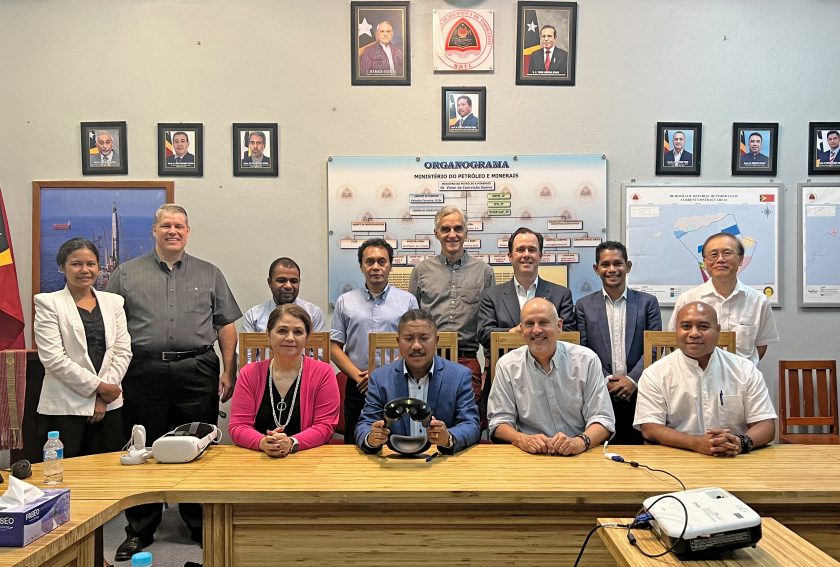Bureau Partners With Island of Timor-Leste on Energy Project
December 12, 2023

In January 2023, a team of researchers from the Bureau of Economic Geology traveled to the small island nation of Timor-Leste to discuss how the bureau can assist with energy development.
The researchers were invited by the national oil and gas company of the nation, TIMOR GAP. The company is seeking the bureau’s assistance in characterizing, and one day developing, the nation’s significant natural gas reserves and in exploring the potential for other technologies, such as storing carbon dioxide emissions and hydrogen in depleted reservoirs.
The travel team included bureau researchers Robin Dommisse, Dallas Dunlap, Jay Kipper, Toti Larson and Hongliu Zeng, as well as Mojdeh Delshad from The University of Texas at Austin Hildebrand Department of Petroleum and Geosystems Engineering. During the trip, the bureau team met with the nation’s energy minister and briefed U.S. Embassy staffers on the project.
“The people we met were wonderful — caring, thoughtful and enthusiastic to work on this project,” said Dunlap, the project’s manager. “Our team established a real bond with them, and we are all deeply invested in the success of this project. Having the benefit of revenue from gas production could be a game changer for Timor-Leste’s economy and for the future prosperity of its people.”
Timor-Leste is in the southern Pacific Ocean, north of Australia, and has a population of about 1.3 million people. The nation is predominantly agrarian but is looking to expand its infrastructure and modernize its economy as its population grows.
The bureau will use state-of-the-art geological, geophysical and petroleum engineering technologies to conduct a comprehensive evaluation of the country’s Greater Sunrise Field Complex, which contains two undeveloped gas and condensate fields.
The studies will be done in close collaboration with TIMOR GAP engineers and geoscientists to allow for seamless knowledge transfer. Three to six TIMOR GAP scientists will travel to the bureau soon for several months of work on the integrated project, giving them a hands-on perspective on research techniques and technology, as well as providing them an opportunity to return home with new research and leadership skills.
Back to the Newsletter